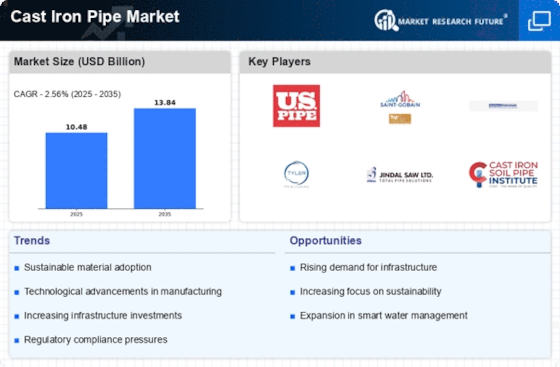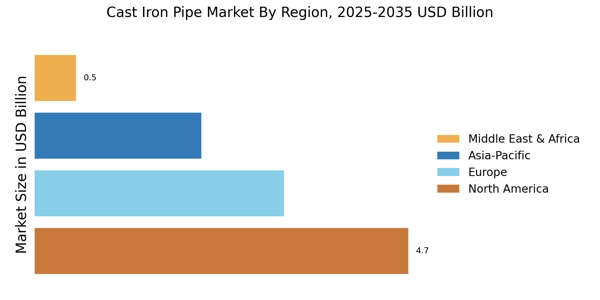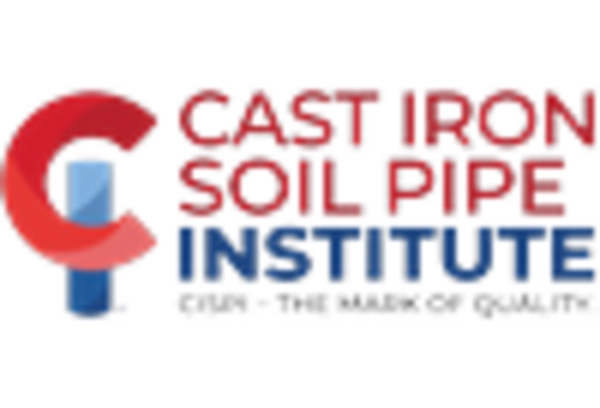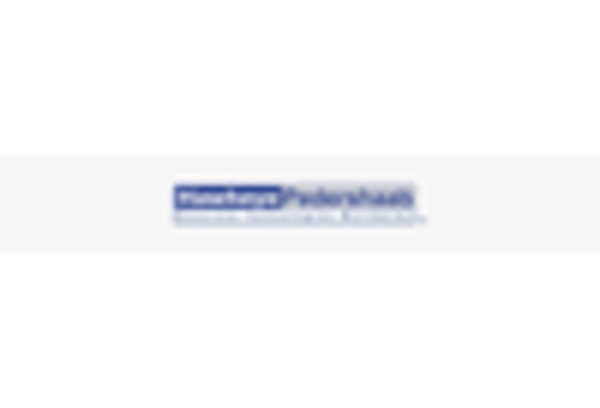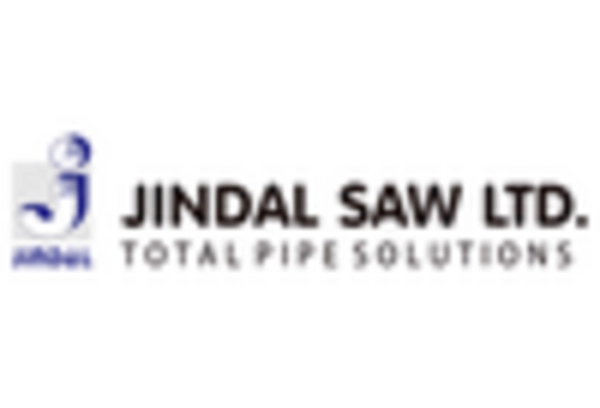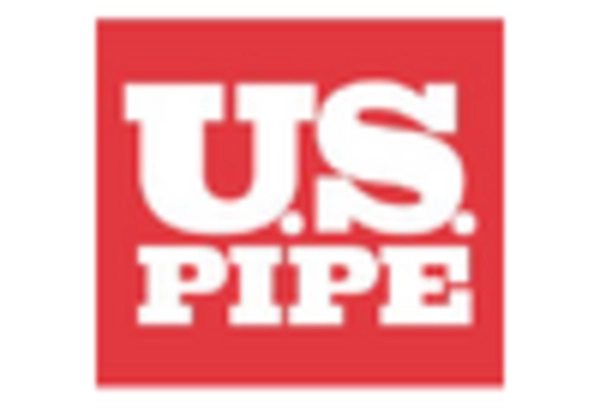Regulatory Standards and Compliance
The Cast Iron Pipe Market is significantly influenced by regulatory standards aimed at ensuring the safety and quality of water supply systems. Governments and regulatory bodies are increasingly enforcing stringent guidelines regarding the materials used in infrastructure projects. Cast iron pipes, recognized for their durability and resistance to corrosion, often meet these high standards, making them a preferred choice for many municipalities. Compliance with these regulations not only enhances public health but also drives demand for cast iron pipes as cities strive to modernize their infrastructure. The ongoing emphasis on safety and quality in public works projects suggests a robust market for cast iron pipes in the foreseeable future.
Rising Demand in Emerging Economies
Emerging economies are witnessing a surge in infrastructure development, which serves as a significant driver for the Cast Iron Pipe Market. Countries in Asia, Africa, and Latin America are investing heavily in water supply and sanitation projects to support their growing populations. The World Bank estimates that investments in infrastructure could reach trillions of dollars in these regions over the next decade. Cast iron pipes, known for their reliability and cost-effectiveness, are increasingly being adopted in these markets. The rising demand for efficient water management systems in developing nations indicates a promising outlook for the cast iron pipe sector, as these countries strive to improve their infrastructure and public health.
Urbanization and Infrastructure Growth
The rapid pace of urbanization is a primary driver for the Cast Iron Pipe Market. As cities expand, the demand for robust infrastructure, including water supply and sewage systems, increases significantly. According to recent data, urban areas are projected to house over 68% of the world's population by 2050, necessitating the installation of durable piping solutions. Cast iron pipes, known for their longevity and strength, are favored in these applications. The need for reliable infrastructure to support growing populations and industries propels the market forward, as municipalities invest heavily in upgrading and expanding their water and waste management systems. This trend indicates a sustained demand for cast iron pipes, as they are integral to modern urban planning and development.
Sustainability and Environmental Considerations
Sustainability trends are becoming a pivotal driver in the Cast Iron Pipe Market. As environmental concerns rise, there is a growing emphasis on using materials that are recyclable and have a lower carbon footprint. Cast iron pipes are inherently sustainable due to their longevity and the ability to be recycled at the end of their life cycle. This aligns with the increasing demand for eco-friendly construction practices. Market analysis indicates that projects focusing on sustainability are more likely to incorporate cast iron solutions, as they contribute to reducing waste and promoting resource efficiency. This trend is expected to bolster the market as more stakeholders prioritize sustainable materials in their infrastructure projects.
Technological Innovations in Pipe Manufacturing
Technological advancements in the manufacturing processes of cast iron pipes are reshaping the Cast Iron Pipe Market. Innovations such as improved casting techniques and the introduction of ductile iron have enhanced the performance characteristics of these pipes. For instance, the adoption of advanced metallurgy has led to pipes that are not only stronger but also lighter, facilitating easier installation and maintenance. Market data suggests that the efficiency of production has increased, reducing costs and improving the overall quality of cast iron pipes. These innovations are likely to attract new investments and encourage the adoption of cast iron solutions in various applications, from residential to industrial, thereby expanding the market's reach.


